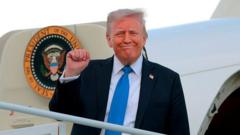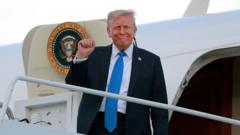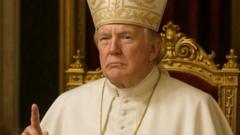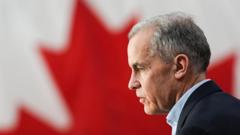In a bold response to Trump’s crackdown on universities and law firms, over 400 academic leaders have declared a unified opposition, signaling a potential shift in institutional resistance against governmental overreach.**
Universities Unite Against Trump’s Educational Interference**

Universities Unite Against Trump’s Educational Interference**
Harvard and its peers lead a decisive stand against the Trump administration's intrusive policies impacting higher education.**
In a striking turn of events, prominent American universities and law firms appear to be navigating a dangerous landscape crafted by President Trump’s political maneuvers. Following a series of measures targeting institutions deemed "woke" and those associated with his political opponents, the scenario has become a high-stakes prisoner’s dilemma for these entities.
Facing stern choices, some institutions opted for early compliance with Trump’s expectations, believing such moves might shield them from harsh consequences. Columbia University and several leading law firms chose this path, fearing retaliation. However, recent developments indicate a shift towards resistance, fueled by a newfound sense of solidarity among academic institutions.
Harvard University has taken a courageous stand, declaring its intent to resist what it labels as the administration's illegal demands. In a collective statement, over 400 university presidents joined Harvard, declaring their unified opposition to what they characterize as “unprecedented governmental overreach” that threatens the very fabric of American higher education.
As the tide turns, prominent law firms are also pushing back. Several legal entities have initiated lawsuits against the administration’s orders, successfully securing temporary injunctions against these moves. Hundreds of additional firms have rallied in support of this legal struggle, demonstrating a coordinated resistance.
On the corporate front, Microsoft has distanced itself from a law firm that capitulated to the White House, opting instead for a partner that stands in opposition to these policies. This development illustrates a broader trend of resistance, exemplifying a willingness to prioritize firm independence and ethical positions over temporary compliance amid political pressures.
As these institutions band together, the future of higher education in America hangs in the balance, beckoning a decisive moment in the evolving narrative of political influence over educational freedom.



















